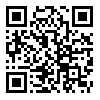Sun, Nov 16, 2025
Volume 8, Issue 1 (Continuous publishing 2022)
Iran J Neurosurg 2022, 8(1): 0-0 |
Back to browse issues page
Download citation:
BibTeX | RIS | EndNote | Medlars | ProCite | Reference Manager | RefWorks
Send citation to:



BibTeX | RIS | EndNote | Medlars | ProCite | Reference Manager | RefWorks
Send citation to:
Sharifi G, Kalani N, Kazemi A, Kazeminezhad A. Neurosurgery Practice During the COVID-19 Pandemic. Iran J Neurosurg 2022; 8 (1) : 3
URL: http://irjns.org/article-1-286-en.html
URL: http://irjns.org/article-1-286-en.html
1- Professor of Neurosurgery, Department of Neurosurgery, School of Medicine, Skull Base Research Center, Loghman Hakim Hospital, Shahid Beheshti University of Medical Sciences, Tehran, Iran
2- Department of Anesthesiology, Critical Care and Pain Management Research Center, Jahrom University of Medical Sciences, Jahrom, Iran
3- Faculty Member, Jahrom University of Medical Sciences, Medical School, Department of Bacteriology and Virology, Jahrom, Iran
4- Department of Neurosurgery, Peymanieh Hospital, Trauma Research Center, Jahrom University of Medical Sciences, Jahrom, Iran ,kazemimd@msn.com
2- Department of Anesthesiology, Critical Care and Pain Management Research Center, Jahrom University of Medical Sciences, Jahrom, Iran
3- Faculty Member, Jahrom University of Medical Sciences, Medical School, Department of Bacteriology and Virology, Jahrom, Iran
4- Department of Neurosurgery, Peymanieh Hospital, Trauma Research Center, Jahrom University of Medical Sciences, Jahrom, Iran ,
Abstract: (3149 Views)
Background and Aim: The viral agent in severe acute respiratory distress syndrome coronavirus 2 (SARS-CoV-2) is the cause of the novel coronavirus disease 2019 (COVID-19). It was first identified in December 2019 in the city of Wuhan, Hubei, China, and the World Health Organization declared it as an outbreak and a Public Health Emergency of International Concern on 30 January 2020, and a pandemic on 11 March 2020. Neurosurgeons are not prime in COVID-19 management but they continue for caring, visiting, and operating neurosurgical patients. In neurosurgical cases that need non-urgent operation, systematic SARS-CoV-2 testing of low-risk patients should be considered. In cases with positive SRAS-COV-2 testing, the procedures should be delayed until they are cured. The high-risk settings in the neurosurgical operation room are endotracheal intubation and extubation, operations in the vicinity of sinuses and/or mastoids, operations with accidental injury to respiratory or digestive tracts, and usage of aerosol-generating instruments on virioncontaminated tissues. The risk of SARS-COV-2 infection is decreased by delaying all nonemergent cases, replacing general anesthesia with other anesthesia methods, replacing neurosurgical approaches with alternative approaches that bypass the respiratory tract, and decreasing the usage of aerosol-generating instruments.
Methods and Materials/Patients: This is a narrative study about COVID-19 infection in neurosurgery. Using the keywords SARS-COV2, neurosurgery, and COVID-19, all the relevant articles (about 52) were retrieved from Google Scholar, Medline, and PubMed and reviewed and
critically analyzed.
Results: Neurosurgeons can change neurosurgical routines in COVID-19 patients such as delaying all nonemergent cases, replacing general anesthesia with other anesthesia methods, replacing neurosurgical approaches with alternative approaches that bypass the respiratory tract, decreasing the usage of aerosol-generating instruments, and doing preoperative SRAS-COV-2 testing.
Conclusion: For decreasing the risk of COVID-19 transmission in neurosurgery, we can change routine neurosurgical protocols. Without the prevention of COVID-19 transmission, all neurosurgeons, personnel, and patients will contract COVID-19.
Methods and Materials/Patients: This is a narrative study about COVID-19 infection in neurosurgery. Using the keywords SARS-COV2, neurosurgery, and COVID-19, all the relevant articles (about 52) were retrieved from Google Scholar, Medline, and PubMed and reviewed and
critically analyzed.
Results: Neurosurgeons can change neurosurgical routines in COVID-19 patients such as delaying all nonemergent cases, replacing general anesthesia with other anesthesia methods, replacing neurosurgical approaches with alternative approaches that bypass the respiratory tract, decreasing the usage of aerosol-generating instruments, and doing preoperative SRAS-COV-2 testing.
Conclusion: For decreasing the risk of COVID-19 transmission in neurosurgery, we can change routine neurosurgical protocols. Without the prevention of COVID-19 transmission, all neurosurgeons, personnel, and patients will contract COVID-19.
Article number: 3
Type of Study: Review |
Subject:
Basic Neurosurgery
Send email to the article author
| Rights and Permissions | |
 |
This work is licensed under a Creative Commons Attribution-NonCommercial 4.0 International License. |






